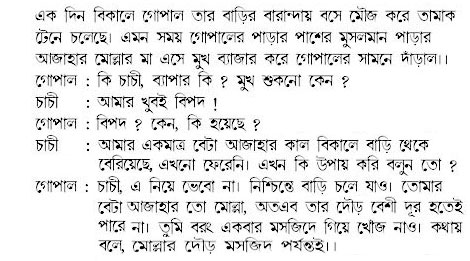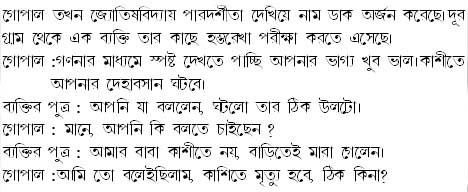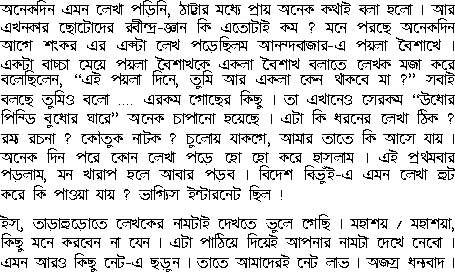| Sourcer:- Google.com.pk |
"My father used to wear loafers," she confessed. "Both on the same foot".The typical comic technique is the disproportion.In the wit field plays the "economy of censorship expenditure" (Freud calls it "the economy of psychic expenditure"); usually censorship prevents some 'dangerous ideas' from reaching the conscious mind, or helps us avoid saying everything that comes to mind; adversely, the wit circumvents the censorship and brings up those ideas. Different wit techniques allow one to express them in a funny way. The profound meaning behind a wit joke is "I have dangerous ideas". An example from Woody Allen:I contemplated suicide again - this time by inhaling next to an insurance salesman.Or, when a bagpipe player was asked "How do you play that thing?" his answer was "Well." Wit is a branch of rhetoric, and there are about 200 techniques (technically they are called tropes, a particular kind of figure of speech) that can be used to make jokes.In the comedy field, humour induces an "economised expenditure of emotion" (Freud calls it "economy of affect" or "economy of sympathy". Freud produced this final part of his interpretation many years later, in a paper later supplemented to the book.). In other words, the joke erases an emotion that should be felt about an event, making us insensitive to it.e.g.: "yo momma" jokes. The profound meaning of the void feeling of a humour joke is "I'm a cynic". An example from Woody Allen:Three times I've been mistaken for Robert Redford. Each time by a blind person.This field of jokes is still a grey area, being mostly unexplored. Extensive use of this kind of humour can be found in the work of British satirist Chris Morris, like the sketches of the Jam television program.Black humour and sarcasm belong to this field.Folklorists, in particular (but not exclusively) those who study the folklore of the United States, collect jokes into joke cycles. A cycle is a collection of jokes with a particular theme or a particular "script". (That is, it is a literature cycle.)Folklorists have identified several such cycles:Gruner discusses several "sick joke" cycles that occurred upon events surrounding Gary Hart, Natalie Wood, Vic Morrow, Jim Bakker, Richard Pryor, Princess Diana and Michael Jackson, noting how several jokes were recycled from one cycle to the next. For example: A joke about Vic Morrow ("We now know that Vic Morrow had dandruff: they found his head and shoulders in the bushes") was subsequently recycled about Admiral Mountbatten, and again applied to the crew of the Challenger space shuttle ("How do we know that Christa McAuliffe had dandruff? They found her head and shoulders on the beach.").Berger asserts that "whenever there is a popular joke cycle, there generally is some widespread kind of social and cultural anxiety, lingering below the surface, that the joke cycle helps people deal with".This section does not cite any references or sources. Please help improve this section by adding citations to reliable sources. Unsourced material may be challenged and removed. es often depend on the humour of the unexpected, the mildly taboo (which can include the distasteful or socially improper), or playing off stereotypes and other cultural beliefs. Many jokes fit into more than one category.Political jokes are usually a form of satire. They generally concern politicians and heads of state, but may also cover the absurdities of a country's political situation. A prominent example of political jokes would be political cartoons. Two large categories of this type of jokes exist. The first one makes fun of a negative attitude to political opponents or to politicians in general. The second one makes fun of political clichés, mottoes, catch phrases or simply blunders of politicians. Some, especially the "you have two cows" genre, derive humour from comparing different political systems.Professional humour includes caricatured portrayals of certain professions such as lawyers, and in-jokes told by professionals to each other.Mathematical jokes are a form of in-joke, generally designed to be understandable only by insiders. (They are also often strictly visual jokes.)Ethnic jokes exploit ethnic stereotypes. They are often racist and frequently considered offensive. For example, the British tell jokes starting "An Englishman, an Irishman and a Scotsman..." which exploit the supposed parsimony of the Scot, stupidity of the Irish or rigid conventionality of the English. Such jokes exist among numerous peoples.Sexist jokes exploit sexual stereotypes. They are inherently sexist, and are increasingly considered offensive.Jokes based on other stereotypes (such as blonde jokes) are often considered funny.Religious jokes fall into several categories:
Jokes based on stereotypes associated with people of religion (e.g. nun jokes, priest jokes, or rabbi jokes)
Jokes on classical religious subjects: crucifixion, Adam and Eve, St. Peter at The Gates, etc.Jokes that collide different religious denominations: "A rabbi, a medicine man, and a pastor went fishing..."Letters and addresses to God.Self-deprecating or self-effacing humour is superficially similar to racial and stereotype jokes, but involves the targets laughing at themselves. It is said to maintain a sense of perspective and to be powerful in defusing confrontations. A common example is Jewish humour. A similar situation exists in the Scandinavian "Ole and Lena" joke.Self-deprecating humour has also been used by politicians, who recognise its ability to acknowledge controversial issues and steal the punch of criticism.[citation needed] For example, when Abraham Lincoln was accused of being two-faced he replied, "If I had two faces, do you think this is the one I'd be wearing?".Dirty jokes are based on taboo, often sexual, content or vocabulary. The definitive studies on them have been written by Gershon Legman.
Bengali Adult Jokes Adult Jokes Sms Funny Hindi English Photos Images Wallpapers
Bengali Adult Jokes Adult Jokes Sms Funny Hindi English Photos Images Wallpapers
Bengali Adult Jokes Adult Jokes Sms Funny Hindi English Photos Images Wallpapers
Bengali Adult Jokes Adult Jokes Sms Funny Hindi English Photos Images Wallpapers
Bengali Adult Jokes Adult Jokes Sms Funny Hindi English Photos Images Wallpapers
Bengali Adult Jokes Adult Jokes Sms Funny Hindi English Photos Images Wallpapers
Bengali Adult Jokes Adult Jokes Sms Funny Hindi English Photos Images Wallpapers
Bengali Adult Jokes Adult Jokes Sms Funny Hindi English Photos Images Wallpapers
Bengali Adult Jokes Adult Jokes Sms Funny Hindi English Photos Images Wallpapers
Bengali Adult Jokes Adult Jokes Sms Funny Hindi English Photos Images Wallpapers
Bengali Adult Jokes Adult Jokes Sms Funny Hindi English Photos Images Wallpapers








No comments:
Post a Comment